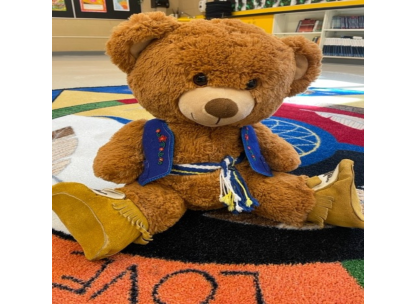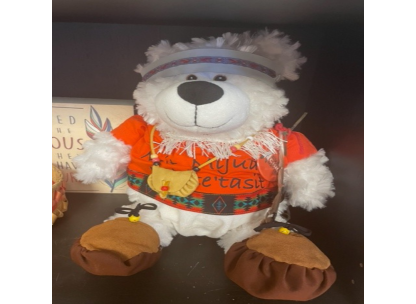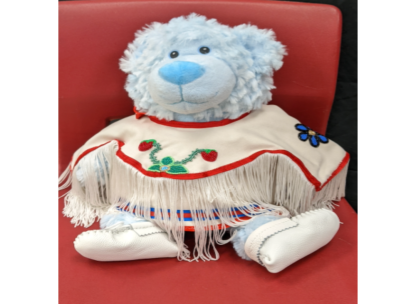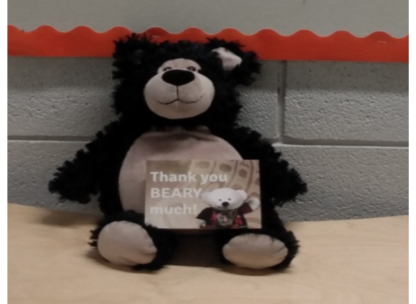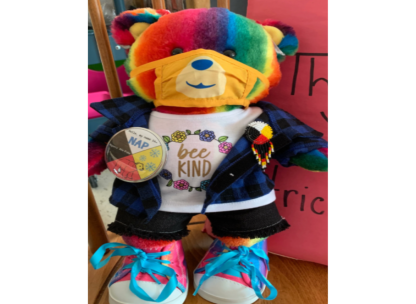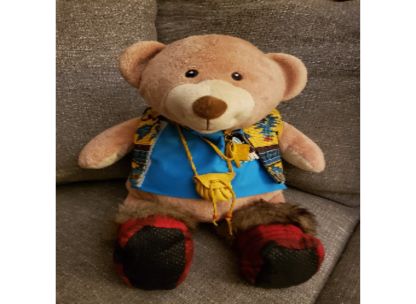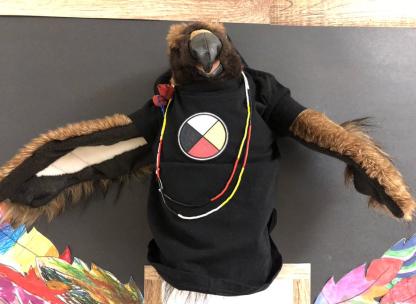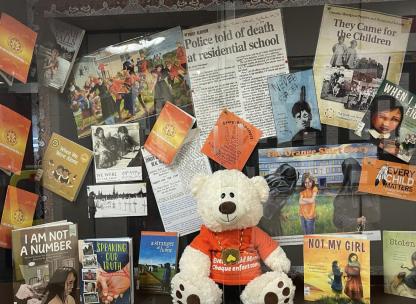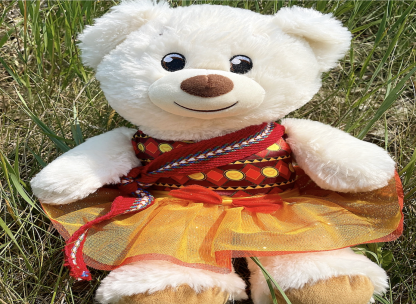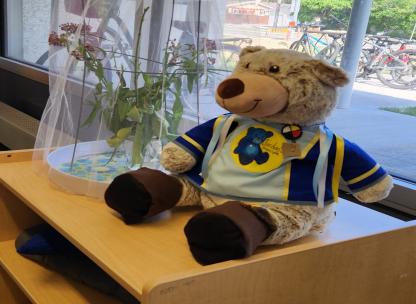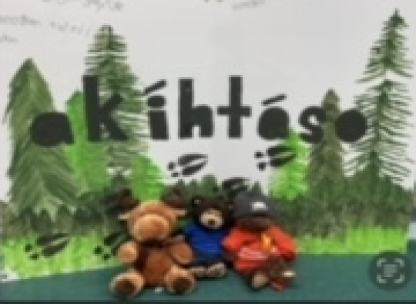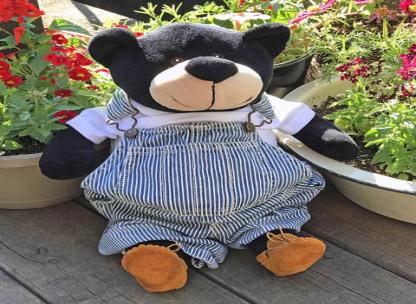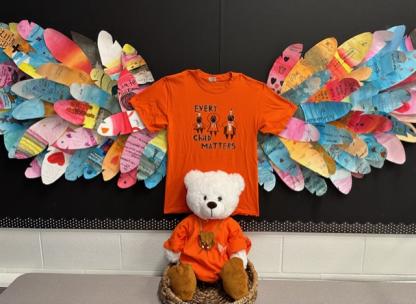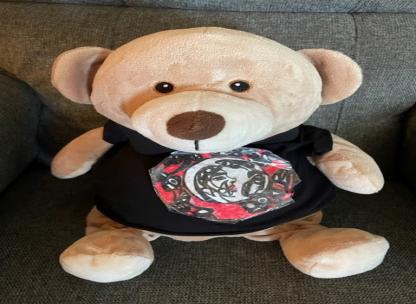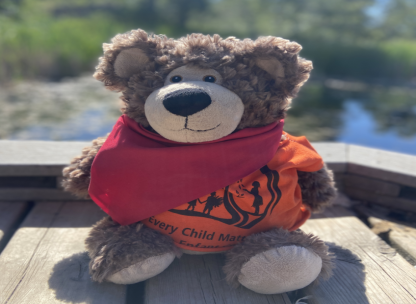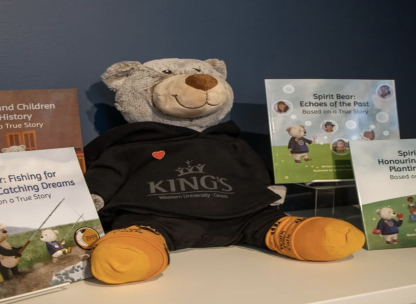Reconciliation Ambearristers
The Caring Society’s Reconciliation Ambearristers initiative invites groups to host a Reconciliation Ambearrister (ambassadors + barristers) who will guide you through years of free ways to implement the Truth and Reconciliation Commission’s Calls to Action and make a positive difference for First Nations children, youth, and families.
Spirit Bear is a membear of the Carrier Sekani Tribal Council and is an Ambearrister who represents First Nations and other children who are standing up for culturally-based and equitable First Nations public services at the Canadian Human Rights Tribunal. He believes that addressing discrimination takes love, honesty, compassion, and a real commitment to helping others do the right thing. Spirit Bear has written books telling the true stories of how children of all diversities have helped ensure First Nations children get the public services they need when they need them. Still, there is more work to do and more work that Spirit Bear can handle alone so his relatives have come to help him educate and engage other children, youth and adults to help make the Truth and Reconciliation Commission’s Calls to Action a reality.
The Ambearristers are meant to build relationships with local First Nations, Metis and Inuit peoples to work toward a shared vision of reconciliation. We have introduced a phased approach to the Reconciliation Ambearrister initiative that recognizes that some groups have good relationships with First Nations, Métis and Inuit peoples in their territories, and others are just getting started in building those relationships.
While you and Ambearrister get to work on reconciliation, we ask that you update us annually on the innovative ways you are responding to the Truth and Reconciliation Commission’s Calls to Action and the Missing and Murdered Indigenous Women and Girls Calls to Justice.
After spending a year with their Ambearrister, groups must write a letter and/or prepare a video explaining all they have learnt, and their Ambearrister’s story. Since groups are asked to update the Caring Society annually, compiling letters and/or videos should be an easy process!
As a really cool fact about the initiative, Ambearristers have already gone as far as Australia!
Here is more information about the Reconciliation Ambearristers process and requirements in phases. As a reminder, if groups have an affirmed relationship with a local community-authorized Elder and/or Knowledge Keeper and awareness of injustices and inequities affecting First Nations children and youth, groups can let us know and move to Phase Two!
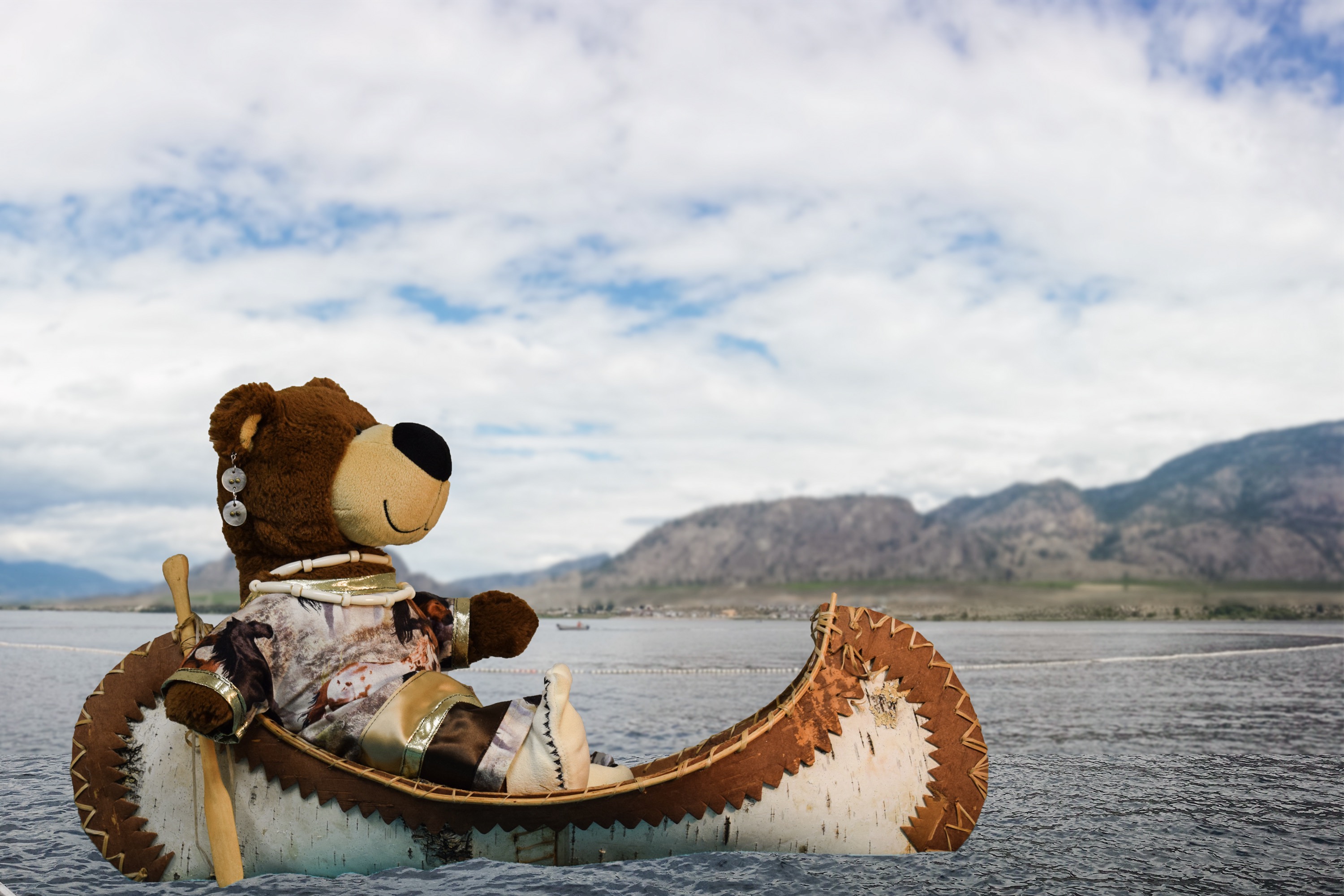
Ambearrister Tupa is a special membear of the Okanagan Nation Alliance.
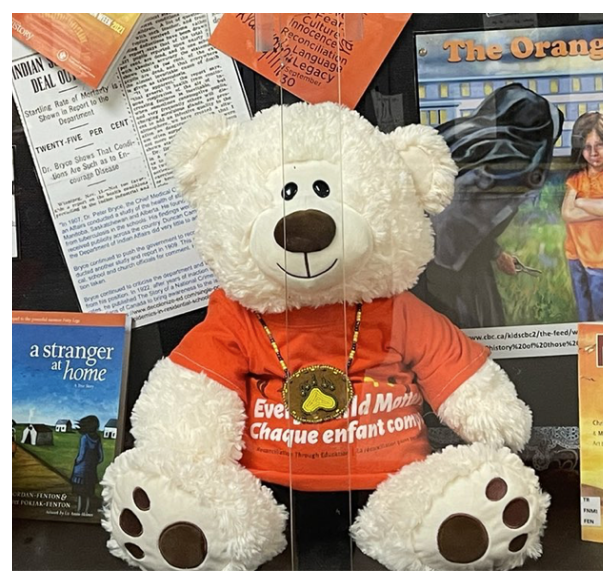
Ambearrister Maskwa from Fort McMurray, Alberta.
Reconciliation Ambearristers Gallery
